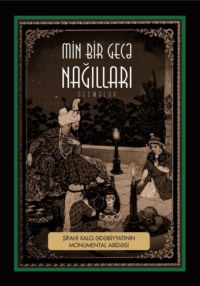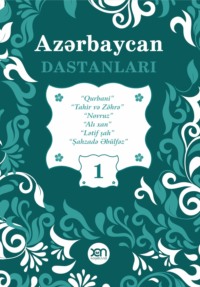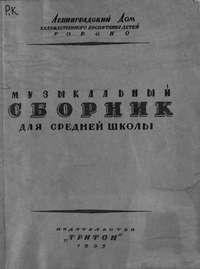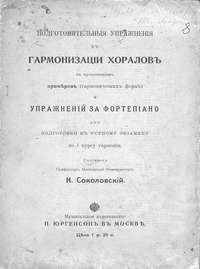 полная версия
полная версияA plain and literal translation of the Arabian nights entertainments, now entituled The Book of the Thousand Nights and a Night. Volume 7 (of 17)
When Ra’ad Shah saw how evilly Ajib fared with his brother, he called for his charger and donning his harness and habergeon, mounted and dashed out a-field. As soon as he drew near King Gharib, he cried out at him, saying, “O basest of Arabs and bearer of scrubs,55 who art thou, that thou shouldest capture Kings and braves? Down from thy horse and put elbows behind back and kiss my feet and set my warriors free and go with me in bond of chains to my reign that I may pardon thee and make thee a Shaykh in our own land, so mayst thou eat there a bittock of bread.” When Gharib heard these words he laughed till he fell backwards and answered, saying, “O mad hound and mangy wolf, soon shalt thou see against whom the shifts of Fortune will turn!” Then he cried out to Sahim, saying, “Bring me the prisoners;” so he brought them, and Gharib smote off their heads; whereupon Ra’ad Shah drave at him, with the driving of a lordly champion and the onslaught of a fierce slaughterer and they falsed and feinted and fought till nightfall, when the kettle-drums beat the retreat.–And Shahrazad perceived the dawn of day and ceased saying her permitted say.
Now when it was the Six Hundred and Sixty-third Night,She resumed, It hath reached me, O auspicious King, that when the kettle-drums beat the retreat, the two Kings parted and returned, each to his own place where his people gave him joy of his safety. And the Moslems said to Gharib, “’Tis not thy wont, O King, to prolong a fight;” and he replied, “O folk, I have done battle with many royalties56 and champions; but never saw I a harder hitter than this one. Had I chosen to draw Al-Mahik upon him, I had mashed his bones and made an end of his days: but I delayed with him, thinking to take him prisoner and give him part enjoyment in Al-Islam.” Thus far concerning Gharib; but as regards Ra’ad Shah, he returned to his marquee and sat upon his throne, when his Chiefs came in to him and asked him of his adversary, and he answered, “By the truth of the sparkling Fire, never in my life saw I the like of yonder brave! But to-morrow I will take him prisoner and lead him away dejected and abject.” Then they slept till daybreak, when the battle-drums beat to fight and the swords in baldric were dight; and war-cries were cried amain and all mounted their horses of generous strain and drew out into the field, filling every wide place and hill and plain. The first to open the door of war was the rider outrageous and the lion rageous, King Gharib, who drave his steed between the two hosts and wheeled and careered over the field, crying, “Who is for fray, who is for fight? Let no sluggard come out to me this day nor dullard!” Before he had made an end of speaking, out rushed Ra’ad Shah, riding on an elephant, as he were a vast tower, in a seat girthed with silken bands; and between the elephant’s ears sat the driver, bearing in hand a hook, wherewith he goaded the beast and directed him right and left. When the elephant drew near Gharib’s horse, and the steed saw a creature it had never before set eyes on, it took fright;57 wherefore Gharib dismounted and gave the horse to Kaylajan. Then he drew Al-Mahik and advanced to meet Ra’ad Shah afoot, walking on till he faced the elephant. Now it was Ra’ad Shah’s wont, when he found himself overmatched by any brave, to mount an elephant, taking with him an implement called the lasso,58 which was in the shape of a net, wide at base and narrow at top with a running cord of silk passed through rings along its edges. With this he would attack horsemen and casting the meshes over them, draw the running noose and drag the rider off his horse and make him prisoner; and thus had he conquered many cavaliers. So, as Gharib came up to him, he raised his hand and, bespreading the net over him, pulled him on to the back of the elephant and cried out to the beast to return to the Indian camp. But Kaylajan and Kurajan had not left Gharib and, when they beheld what had befallen their lord, they laid hold of the elephant, whilst Gharib strove with the net, till he rent it in sunder. Upon this the two Marids seized Ra’ad Shah and bound him with a cord of palm-fibre. Then the two armies drove each at other and met with a shock like two seas crashing or two mountains together dashing, whilst the dust rose to the confines of the sky and blinded was every eye. The battle waxed fierce and fell, the blood ran in rills, nor did they cease to wage war with lunge of lance and sway of sword in lustiest way, till the day darkened and the night starkened, when the drums beat the retreat and the two hosts drew asunder.59 Now the Moslems were evilly entreated that day by reason of the riders on elephants and giraffes,60 and many of them were killed and most of the rest were wounded. This was grievous to Gharib, who commanded the hurt to be medicined and turning to his Chief Officers, asked them what they counselled. Answered they, “O King, ’tis only the elephants and giraffes that irk us; were we but quit of them, we should overcome the enemy.” Quoth Kaylajan and Kurajan, “We twain will unsheath our swords and fall on them and slay the most part of them.” But there came forward a man of Oman, who had been privy counsellor to Jaland, and said, “O King, I will be surety for the host, an thou wilt but hearken to me and follow my counsel.” Gharib turned to his Captains and said to them, “Whatsoever this wise man shall say to you that do.”–And Shahrazad perceived the dawn of day and ceased to say her permitted say.
Now when it was the Six Hundred and Sixty-fourth Night,She pursued, It hath reached me, O auspicious King, that when Gharib said to his Captains, “Whatsoever this wise man shall say to you, that do”; they replied, “Hearing and obeying!” So the Omani chose out ten captains and asked them, “How many braves have ye under your hands?”; and they answered, “Ten thousand fighting-men.” Then he carried them into the armoury and armed five thousand of them with harquebuses and other five thousand with cross-bows and taught them to shoot with these new weapons.61 Now as soon as it was day, the Indians came out to the field, armed cap-à-pie, with the elephants, giraffes and champions in their van; whereupon Gharib and his men mounted and both hosts drew out and the big drums beat to battle. Then the man of Oman cried out to the archers and harquebusiers to shoot, and they plied the elephants and giraffes with shafts and leaden bullets, which entered the beasts’ flanks, whereat they roared out and turning upon their own ranks, trod them down with their hoofs. Presently the Moslems charged the Misbelievers and outflanked them right and left, whilst the elephants and giraffes trampled them and drove them into the hills and wolds, whither the Moslems followed hard upon them with the keen-edged sword and but few of the giraffes and elephants escaped. Then King Gharib and his folk returned, rejoicing in their victory; and on the morrow they divided the loot and rested five days; after which King Gharib sat down on the throne of his kingship and sending for his brother Ajib, said to him, “O dog, why hast thou assembled the Kings against us? But He who hath power over all things hath given us the victory over thee. So embrace the Saving Faith and thou shalt be saved, and I will forbear to avenge my father and mother on thee therefor, and I will make thee King again as thou wast, placing myself under thy hand.” But Ajib said, “I will not leave my faith.” So Gharib bade lay him in irons and appointed an hundred stalwart slaves to guard him; after which he turned to Ra’ad Shah and said to him, “How sayst thou of the faith of Al-Islam?” Replied he, “O my lord, I will enter thy faith; for, were it not a true Faith and a goodly, thou hadst not conquered us. Put forth thy hand and I will testify that there is no god but the God and that Abraham the Friend is the Apostle of God.” At this Gharib rejoiced and said to him, “Is thy heart indeed stablished in the sweetness of this Belief?” And he answered, saying, “Yes, O my lord!” Then quoth Gharib, “O, Ra’ad Shah, wilt thou go to thy country and thy kingdom?”; and quoth he, “O, my lord, my father will put me to death, for that I have left his faith.” Gharib rejoined, “I will go with thee and make thee king of the country and constrain the folk to obey thee, by the help of Allah the Bountiful, the Beneficent.” And Ra’ad Shah kissed his hands and feet. Then Gharib rewarded the counsellor who had caused the rout of the foe and gave him great wealth; after which he turned to Kaylajan and Kurajan, and said to them, “Harkye, Chiefs of the Jinn, ’tis my will that ye carry me, together with Ra’ad Shah and Jamrkan and Sa’adan to the land of Hind.” “We hear and we obey,” answered they. So Kurajan took up Jamrkan and Sa’adan, whilst Kaylajan took Gharib and Ra’ad Shah and made for the land of Hind.–And Shahrazad perceived the dawn of day and ceased saying her permitted say.
Now when it was the Six Hundred and Sixty-fifth Night,She said, It hath reached me, O auspicious King, that when the two Marids had taken up Gharib and Jamrkan, Sa’adan the Ghul and Ra’ad Shah, they flew on with them from sundown till the last of the night, when they set them down on the terrace of King Tarkanan’s palace at Cashmere. Now news was brought to Tarkanan by the remnants of his host of what had befallen his son, whereat he slept not neither took delight in aught, and he was troubled with sore trouble. As he sat in his Harim, pondering his case, behold, Gharib and his company descended the stairways of the palace and came in to him; and when he saw his son and those who were with him, he was confused and fear took him of the Marids. Then Ra’ad Shah turned to him and said, “How long wilt thou persist in thy frowardness, O traitor and worshipper of the Fire? Woe to thee! Leave worshipping the Fire and serve the Magnanimous Sire, Creator of day and night, whom attaineth no sight.” When Tarkanan heard his son’s speech, he cast at him an iron club he had by him; but it missed him and fell upon a buttress of the palace and smote out three stones. Then cried the King, “O dog, thou hast destroyed mine army and hast forsaken thy faith and comest now to make me do likewise!” With this Gharib went up to him and dealt him a cuff on the neck which knocked him down; whereupon the Marids bound him fast and all the Harim-women fled. Then Gharib sat down on the throne of kingship and said to Ra’ad Shah, “Do thou justice upon thy father.” So Ra’ad Shah turned to him and said, “O perverse old man, become one of the saved and thou shalt be saved from the fire and the wrath of the All-powerful.” But Tarkanan cried, “I will not die save in my own faith.” Whereupon Gharib drew Al-Mahik and smote him therewith, and he fell to the earth in two pieces, and Allah hurried his soul to the fire and abiding-place dire.62 Then Gharib bade hang his body over the palace gate and they hung one-half on the right hand and the other on the left and waited till day, when Gharib caused Ra’ad Shah don the royal habit and sit down on his father’s throne, with himself on his dexter hand and Jamrkan and Sa’adan and the Marids standing right and left; and he said to Kaylajan and Kurajan, “Whoso entereth of the Princes and Officers, seize him and bind him, and let not a single Captain escape you.” And they answered, “Hearkening and obedience!” Presently, the Officers made for the palace, to do their service to the King, and the first to appear was the Chief Captain who, seeing King Tarkanan’s dead body cut in half and hanging on either side of the gate, was seized with terror and amazement. Then Kaylajan laid hold of him by the collar and threw him and pinioned him; after which he dragged him into the palace and before sunrise they had bound three hundred and fifty Captains and set them before Gharib, who said to them, “O folk, have you seen your King hanging at the palace-gate?” Asked they, “Who hath done this deed?”; and he answered, “I did it, by the help of Allah Almighty; and whoso opposeth me, I will do with him likewise.” Then quoth they, “What is thy will with us?”; and quoth he, “I am Gharib, King of Al-Irak, he who slew your warriors; and now Ra’ad Shah hath embraced the Faith of Salvation and is become a mighty King and ruler over you. So do ye become True Believers and all shall be well with you; but, if ye refuse, you shall repent it.” So they pronounced the profession of the Faith and were enrolled among the people of felicity. Then said Gharib, “Are your hearts indeed stablished in the sweetness of the Belief?”; and they replied, “Yes”; whereupon he bade release them and clad them in robes of honour, saying, “Go to your people and expound Al-Islam to them. Whoso accepteth the Faith, spare him; but if he refuse slay him.”–And Shahrazad perceived the dawn of day and ceased to say her permitted say.
Now when it was the Six Hundred and Sixty-sixth Night,She continued, It hath reached me, O auspicious King, that King Gharib said to the troops of Ra’ad Shah, “Go to your people and offer Al-Islam to them. Whoso accepteth the Faith spare him; but if he refuse, slay him.” So they went out and, assembling the men under their command, explained what had taken place and expounded Al-Islam to them, and they all professed, except a few, whom they put to death; after which they returned and told Gharib, who blessed Allah and glorified Him, saying, “Praised be the Almighty who hath made this thing easy to us without strife!” Then he abode in Cashmere of India forty days, till he had ordered the affairs of the country and cast down the shrines and temples of the Fire and built in their stead mosques and cathedrals, whilst Ra’ad Shah made ready for him rarities and treasures beyond count and despatched them to Al-Irak in ships. Then Gharib mounted on Kaylajan’s back and Jamrkan and Sa’adan on that of Kurajan, after they had taken leave of Ra’ad Shah; and journeyed through the night till break of day, when they reached Oman city where their troops met them and saluted them and rejoiced in them. Then they set out for Cufa where Gharib called for his brother Ajib and commanded to hang him. So Sahim brought hooks of iron and driving them into the tendons of Ajib’s heels, hung him over the gate; and Gharib bade them shoot him; so they riddled him with arrows, till he was like unto a porcupine. Then Gharib entered his palace and sitting down on the throne of his kingship, passed the day in ordering the affairs of the state. At nightfall he went in to his Harim, where Star o’ Morn came to meet him and embraced him and gave him joy, she and her women, of his safety. He spent that day and lay that night with her and on the morrow, after he had made the Ghusl-ablution and prayed the dawn-prayer, he sat down on his throne and commanded preparation to be made for his marriage with Mahdiyah. Accordingly they slaughtered three thousand head of sheep and two thousand oxen and a thousand he-goats and five hundred camels and the like number of horses, beside four thousand fowls and great store of geese; never was such wedding in Al-Islam to that day. Then he went in to Mahdiyah and took her maidenhead and abode with her ten days; after which he committed the kingdom to his uncle Al-Damigh, charging him to rule the lieges justly, and journeyed with his women and warriors, till he came to the ships laden with the treasures and rarities which Ra’ad Shah had sent him, and divided the monies among his men who from poor became rich. Then they fared on till they reached the city of Babel, where he bestowed on Sahim Al-Layl a robe of honour and appointed him Sultan of the city.–And Shahrazad perceived the dawn of day and ceased saying her permitted say.
Now when it was the Six Hundred and Sixty-seventh Night,She resumed, It hath reached me, O auspicious King, that Gharib, after robing his brother Sahim and appointing him Sultan, abode with him ten days, after which he set out again and journeyed nor stinted travel till he reached the castle of Sa’adan the Ghul, where they rested five days. Then quoth Gharib to Kaylajan and Kurajan, “Pass over to Isbánír al-Madáin, to the palace of the Chosroe, and find what is come of Fakhr Taj and bring me one of the King’s kinsmen, who shall acquaint me with what hath passed.” Quoth they, “We hear and we obey,” and set out forthright for Isbanir. As they flew between heaven and earth, behold, they caught sight of a mighty army, as it were the surging sea, and Kaylajan said to Kurajan, “Let us descend and determine what be this host.” So they alighted and walking among the troops, found them Persians and questioned the soldiers whose men they were and whither they were bound; whereto they made answer, “We are en route for Al-Irak, to slay Gharib and all who company him.” When the Marids heard these words, they repaired to the pavilion of the Persian general, whose name was Rustam, and waited till the soldiers slept, when they took up Rustam, bed and all, and made for the castle where Gharib lay. They arrived there by midnight and going to the door of the King’s pavilion, cried, “Permission!” which when he heard, he sat up and said, “Come in.” So they entered and set down the couch with Rustam asleep thereon. Gharib asked, “Who be this?” and they answered, “This be a Persian Prince, whom we met coming with a great host, thinking to slay thee and thine, and we have brought him to thee, that he may tell thee what thou hast a mind to know.” “Fetch me an hundred braves!” cried Gharib, and they fetched them; whereupon he bade them, “Draw your swords and stand at the head of this Persian carle!” Then they awoke him and he opened his eyes; and, finding an arch of steel over his head, shut them again, crying, “What be this foul dream?” But Kaylajan pricked him with his sword-point and he sat up and said, “Where am I?” Quoth Sahim, “Thou art in the presence of King Gharib, son-in-law of the King of the Persians. What is thy name and whither goest thou?” When Rustam heard Gharib’s name, he bethought himself and said in his mind, “Am I asleep or awake?” Whereupon Sahim dealt him a buffet, saying, “Why dost thou not answer?” And he raised his head and asked, “Who brought me from my tent out of the midst of my men?” Gharib answered, “These two Marids brought thee.” So he looked at Kaylajan and Kurajan and skited in his bag-trousers. Then the Marids fell upon him, baring their tusks and brandishing their blades, and said to him, “Wilt thou not rise and kiss ground before King Gharib?” And he trembled at them and was assured that he was not asleep; so he stood up and kissed the ground between the hands of Gharib, saying, “The blessing of the Fire be on thee, and long life be thy life, O King!” Gharib cried, “O dog of the Persians, fire is not worshipful, for that it is harmful and profiteth not save in cooking food.” Asked Rustam, “Who then is worshipful?”; and Gharib answered, “Alone worship-worth is God, who formed thee and fashioned thee and created the heavens and the earth.” Quoth the Ajami, “What shall I say that I may become of the party of this Lord and enter thy Faith?”; and quoth Gharib, “Say:—There is no god but the God, and Abraham is the Friend of God.” So Rustam pronounced the profession of the Faith and was enrolled among the people of felicity. Then said he to Gharib, “Know, O my lord, that thy father-in-law, King Sabúr, seeketh to slay thee; and indeed he hath sent me with an hundred thousand men, charging me to spare none of you.” Gharib rejoined, “Is this my reward for having delivered his daughter from death and dishonour? Allah will requite him his ill intent. But what is thy name?” The Persian answered, “My name is Rustam, general of Sabur;” and Gharib, “Thou shalt have the like rank in my army,” adding, “But tell me, O Rustam, how is it with the Princess Fakhr Taj?” “May thy head live, O King of the age!” “What was the cause of her death?” Rustam replied, “O my lord, no sooner hadst thou left us than one of the Princess’s women went in to King Sabur and said to him:—O my master, didst thou give Gharib leave to lie with the Princess my mistress? whereto he answered:—No, by the virtue of the fire! and drawing his sword, went in to his daughter and said to her:—O foul baggage, why didst thou suffer yonder Badawi to sleep with thee, without dower or even wedding? She replied:—O my papa, ’twas thou gavest him leave to sleep with me. Then he asked:—Did the fellow have thee? but she was silent and hung down her head. Hereupon he cried out to the midwives and slave-girls, saying:—Pinion me this harlot’s elbows behind her and look at her privy parts. So they did as he bade them and after inspecting her slit said to him:—O King, she hath lost her maidenhead. Whereupon he ran at her and would have slain her, but her mother rose up and threw herself between them crying:—O King, slay her not, lest thou be for ever dishonoured; but shut her in a cell till she die. So he cast her into prison till nightfall, when he called two of his courtiers and said to them:—Carry her afar off and throw her into the river Jayhun and tell none. They did his commandment, and indeed her memory is forgotten and her time is past.”–And Shahrazad perceived the dawn of day and ceased to say her permitted say.
Now when it was the Six Hundred and Sixty-eighth Night,She pursued, It hath reached me, O auspicious King, that when Gharib asked news of Fakhr Taj, Rustam informed him that she had been drowned in the river by her sire’s command. And when Gharib heard this, the world waxed wan before his eyes and he cried, “By the virtue of Abraham the Friend, I will assuredly go to yonder dog and overwhelm him and lay waste his realm!” Then he sent letters to Jamrkan and to the governors of Mosul and Mayyáfárikín; and, turning to Rustam, said to him, “How many men hadst thou in thine army?” He replied, “An hundred thousand Persian horse;” and Gharib rejoined, “Take ten thousand horse and go to thy people and occupy them with war; I will follow on thy trail.” So Rustam mounted and taking ten thousand Arab horse made for his tribe, saying in himself, “I will do a deed shall whiten my face with King Gharib.” So he fared on seven days, till there remained but half a day’s journey between him and the Persian camp; when, dividing his host into four divisions he said to his men, “Surround the Persians on all sides and fall upon them with the sword.” They rode on from eventide till midnight, when they had compassed the camp of the Ajamis, who were asleep in security, and fell upon them, shouting, “God is Most Great!” Whereupon the Persians started up from sleep and their feet slipped and the sabre went round amongst them; for the All-knowing King was wroth with them, and Rustam wrought amongst them as fire in dry fuel; till, by the end of the night, the whole of the Persian host was slain or wounded or fled, and the Moslems made prize of their tents and baggage, horses, camels and treasure-chests. Then they alighted and rested in the tents of the Ajamis till King Gharib came up and, seeing what Rustam had done and how he had gained by stratagem a great and complete victory, he invested him with a robe of honour and said to him, “O Rustam, it was thou didst put the Persians to the rout; wherefore all the spoil is thine.” So he kissed Gharib’s hand and thanked him, and they rested till the end of the day, when they set out for King Sabur’s capital. Meanwhile, the fugitives of the defeated force reached Isbanir and went in to Sabur, crying out and saying, “Alas!” and “Well-away!” and “Woe worth the day!” Quoth he, “What hath befallen you and who with his mischief hath smitten you?” So they told him all that had passed and said, “Naught befel us except that thy general Rustam fell upon us in the darkness of the night because he had turned Moslem; nor did Gharib come near us.” When the King heard this, he cast his crown to the ground and said, “There is no worth left us!” Then he turned to his son Ward Shah63 and said to him, “O my son, there is none for this affair save thou.” Answered Ward Shah, “By thy life, O my father, I will assuredly bring Gharib and his chiefs of the people in chains and slay all who are with him.” Then he numbered his army and found it two hundred and twenty thousand men. So they slept, intending to set forth on the morrow; but, next morning, as they were about to march, behold, a cloud of dust arose and spread till it walled the world and baffled the sight of the farthest-seeing wight. Now Sabur had mounted to farewell his son, and when he saw this mighty great dust, he let call a runner and said to him, “Go find me out the cause of this dust-cloud.” The scout went and returned, saying, “O my lord, Gharib and his braves are upon you;” whereupon they unloaded their bât-beasts and drew out in line of battle. When Gharib came up and saw the Persians ranged in row, he cried out to his men, saying, “Charge with the blessing of Allah!” So they waved the flags, and the Arabs and the Ajamis drave one at other and folk were heaped upon folk. Blood ran like water and all souls saw death face to face; the brave advanced and pressed forward to assail and the coward hung back and turned tail and they ceased not from fight and fray till ended day, when the kettle-drums beat the retreat and the two hosts drew apart. Then Sabur commanded to pitch his camp hard over the city-gate, and Gharib set up his pavilions in front of theirs; and every one went to his tent.–And Shahrazad perceived the dawn of day and ceased saying her permitted say.









